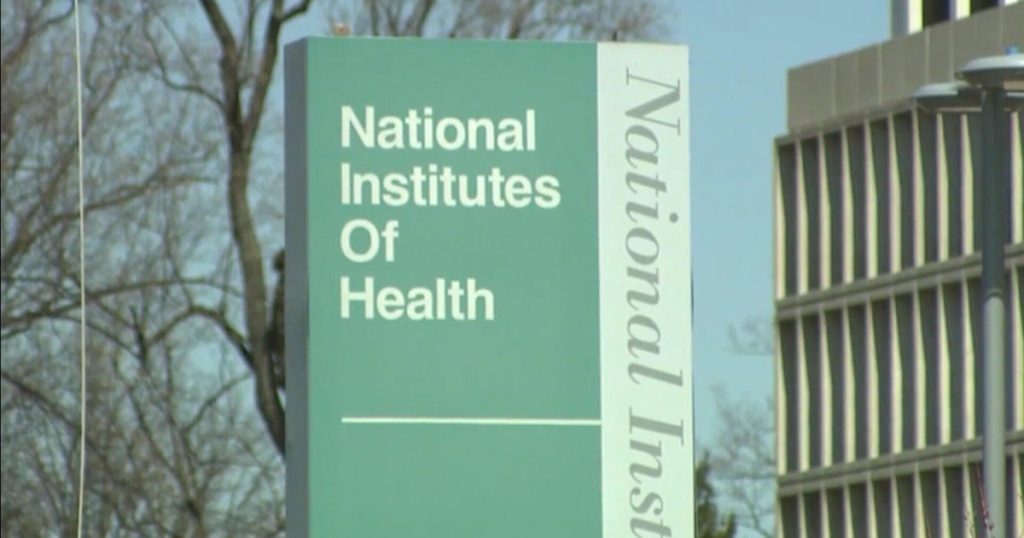In a significant shift within the National Institutes of Health (NIH), Dr. Kevin Hall, a leading expert on ultra-processed foods, announced his early retirement. The decision comes amid allegations of censorship by officials associated with the department, particularly citing limitations placed on his ability to engage with the press regarding critical research findings. This departure highlights ongoing tensions within the agency as federal scientists navigate the current leadership’s approach to scientific discourse and public health communication.
| Article Subheadings |
|---|
| 1) Departure of a Prominent Researcher |
| 2) Allegations of Censorship |
| 3) Impact of Recent Research |
| 4) Experts Weigh In |
| 5) Wider Implications for NIH |
Departure of a Prominent Researcher
Dr. Kevin Hall has been at the forefront of research concerning ultra-processed foods for over 21 years at the NIH. His expertise in how dietary habits affect human physiology has positioned him as a leading academic in his field. Recently, Hall made the decision to retire early from the agency, a move that has captured attention not only for his prominence but also for the context surrounding his exit. He publicly stated his concerns regarding the environment at NIH, specifically mentioning, “I can freely conduct unbiased science,” in a social media post announcing his departure. This statement underscores a growing unease among scientists regarding freedom of inquiry within federal health institutions.
Allegations of Censorship
The circumstances leading to Hall’s retirement are intertwined with claims of censorship from officials within the Department of Health and Human Services led by Secretary Robert F. Kennedy Jr.. Hall recounted a significant instance where he was allegedly blocked from participating in an interview with a respected journalist from The New York Times concerning his pivotal research on ultra-processed foods and their addictive nature. According to Hall, the communication impediments included the editing and alteration of his responses to questions posed by the media without his prior approval. The NIH has firmly denied accusations of censorship, arguing that all scientists maintain the right to engage with the press in various formats and framing Hall’s allegations as a misunderstanding of their communication policies.
Impact of Recent Research
Hall’s research findings suggested that ultra-processed foods do not trigger addiction in the same manner as drugs, which produce significant dopamine responses in the brain. This research raises questions about the factors contributing to the overconsumption of such foods. Hall’s study, lauded as the largest of its kind, involved rigorous dietary controls and hospital admissions to ensure adherence to prescribed diets, leading to significant findings that stray from conventional narratives about food addiction. The implications of his work are notable as they invoke a more nuanced understanding of dietary behaviors, suggesting that the causes of overconsumption may be far more complex than previously thought.
Experts Weigh In
The departure of Dr. Hall has prompted reactions from other experts in the field. Former FDA official Susan Mayne highlighted Hall’s critical contribution to understanding the interplay between ultra-processed foods and calorie intake. She emphasized that few institutions possess the resources, such as metabolic wards, necessary for the kind of controlled studies Hall was leading. Mayne’s observations reflect a shared concern among peers about the potential setbacks to research on ultra-processed foods and public health as a whole as a result of Hall’s resignation.
Wider Implications for NIH
Dr. Hall’s early retirement underscores a troubling trend within the NIH, which has recently witnessed the exit of numerous high-profile researchers amid allegations of political interference and restrictive administrative policies. The current climate at NIH, particularly under the leadership of Secretary Robert F. Kennedy Jr., has drawn scrutiny from various stakeholders, including scientists and health advocates. Reports indicate that this environment has fostered a sense of muzzling among federal scientists, who now face challenges concerning transparency and independence in their research endeavors. This scenario raises pressing questions regarding the future trajectory of scientific inquiry within federal health agencies.
| No. | Key Points |
|---|---|
| 1 | Dr. Kevin Hall has stepped down from NIH after 21 years of research on ultra-processed foods. |
| 2 | Hall alleges censorship by officials of the HHS, raising issues regarding scientific freedom. |
| 3 | Findings from Hall’s research challenge conventional ideas about food addiction. |
| 4 | His exit has prompted reactions from experts concerned about the implications for ongoing nutritional research. |
| 5 | The current environment at NIH raises concerns about political interference in scientific research. |
Summary
Dr. Kevin Hall‘s retirement from NIH points to deeper issues within federal health agencies regarding freedom of inquiry and scientific communication. As researchers face increasing pressures and limitations, the implications for public health research, particularly in relation to nutrition and dietary practices, become critically significant. The future of scientific research at NIH hinges on restoring an environment conducive to unbiased inquiry unimpeded by external pressures.
Frequently Asked Questions
Question: What led to Dr. Hall’s decision to retire early from NIH?
Dr. Hall decided to retire early citing concerns about censorship and the ability to freely conduct research without interference from government officials.
Question: What does Hall’s research suggest about ultra-processed foods?
His research suggests that ultra-processed foods do not trigger addictive behaviors like certain drugs, indicating a need for a more complex understanding of dietary habits and overconsumption.
Question: How has the NIH responded to the allegations made by Dr. Hall?
NIH officials have denied the allegations of censorship, arguing that all scientists have the opportunity to engage with media and present their research without interference.


